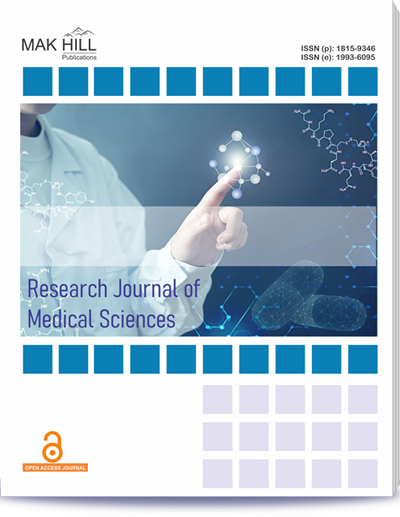
Research Journal of Medical Sciences
ISSN: Online 1993-6095ISSN: Print 1815-9346
Abstract
One major method for treating acute cholecystitis is laparoscopic cholecystectomy (LC). According to the Tokyo Guidelines 2018 (TG18), if the patient's overall health indicates they can tolerate surgery, LC should be carried out as soon as the cholecystitis severity has been determined to be light or moderate. To identify potential risk factors for postoperative complications in LC according to the perioperative condition and scoring systems for post- operative complications The present study was a Comparative study. This Study was conducted for 1 year at Department of General surgery, Murshidabad medical college. Total 100 patients were included in this study. In our study, 40 (40.0%) patients had Hypertension, 10 (10%) patients had Cardiovascular, 20 (20%) patients had Respiratory, 12 (12%) patients had Neurogenic and mental disorder, 5 (5%) patients had Diabetes mellitus, 5(5%) patients had Other, 40 patients had Grade I (mild) Severity grade of cholecystitis, 25 patients had Grade II (moderate) Severity grade of cholecystitis, 35 patients had Grade III (severe) Severity grade of cholecystitis, 20 (20%) patients had External gallbladder drainage. To sum up, in order to maximize patient care and surgical success, it is critical to identify the variables influencing postoperative outcomes in elective laparoscopic cholecystectomy procedures. Postoperative problems and recovery are largely dependent on variables such patient demographics, comorbidities, the severity of gallbladder disease and intraoperative obstacles.
How to cite this article:
Sudip Sarkar and Arnab Naha. Identification of Factors Affecting Post Operative Outcomes in Elective LAP Cholecystectomy.
DOI: https://doi.org/10.36478/10.59218/makrjms.2024.7.18.679.684
URL: https://www.makhillpublications.co/view-article/1815-9346/10.59218/makrjms.2024.7.18.679.684